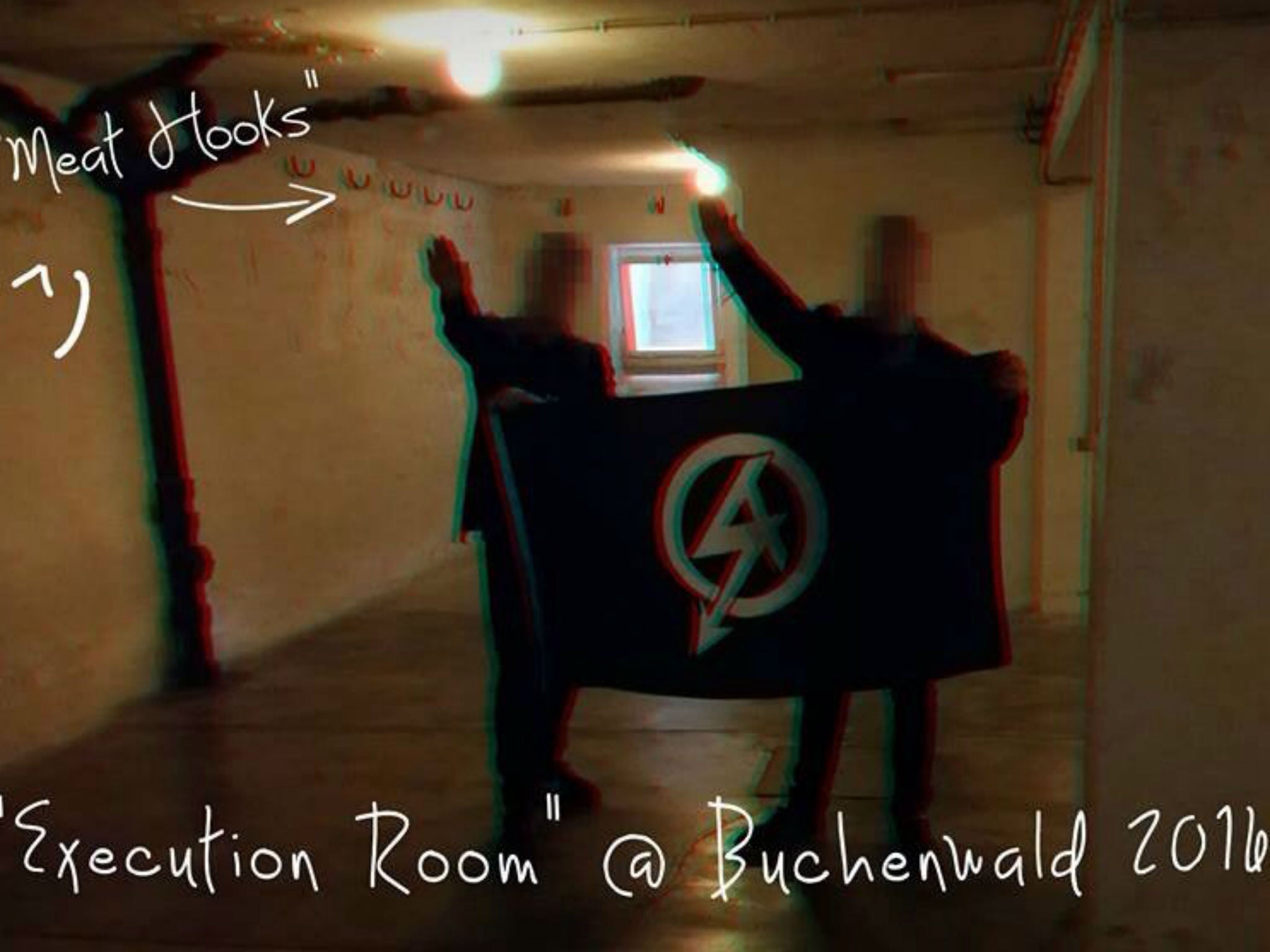Neo-Nazi terrorist group co-founder says he has ‘same moral compass as anyone else’
Alex Davies tells terror trial he is not a ‘bad person’ but does not believe Holocaust happened

The co-founder of a neo-Nazi terrorist group has told a court that he has the same “moral compass as anyone else” and is not a “bad person”.
Alex Davies, 27, set up National Action in 2013 but denies remaining a member after it was banned three years later.
Giving evidence to his trial at Winchester Crown Court, he confirmed that he remained a neo-Nazi and denied the Holocaust, saying he does not “believe there was a systematic extermination of Jews”.
While being questioned by prosecutor Barnaby Jameson QC, Mr Davies said he was an adherent of Adolf Hitler but did not support everything the Third Reich did because “no person or regime is perfect”.
The defendant said that he did not support genocide and did not believe it happened during the Second World War.
He added: “I believe people died, of course they did, many people died in war. What you’re trying to do is paint me as a bad person fundamentally.
“I have the same moral compass as anyone else. I believe murder is wrong and I could not support something that engaged in the systematic genocide of people because they’re Jewish. Whether I believed a historical event happened or not is not what’s on trial here today.”
Mr Davies admitted travelling to the Buchenwald concentration camp in 2016 and being photographed performing a Hitler salute in an execution room, while posing with a National Action flag.
The defendant said the action was “spontaneous” and that he was “disgusted” with himself.
A doctored photograph provoked international outrage when it was shared online, as did tweets from National Action accounts celebrating the murder of Jo Cox.
Jurors were told that when banning the group in December 2016, the government described it as a “racist, antisemitic and homophobic organisation which stirs up hatred, glorifies violence and promotes a vile ideology”.
An official statement said National Action was concerned in terrorism, and that its propaganda material featured extremely violent imagery and language.
Following the ban, Mr Davies allegedly set up a new group called NS131, which was proscribed as an alias of National Action in 2017.

Mr Davies told his trial that it was not an organisation but an “online magazine”, and that he felt “politically homeless”.
The defendant called the British government’s move to ban NS131 and other alleged offshoots of National Action as terrorist groups “political oppression”.
He said it had “unjustly used [terrorism] legislation and the lack of checks and balances on that legislation to oppress people and stop them exercising their democratic rights”.
Mr Davies said he understood why National Action had been banned as a terrorist group, but that NS131 was not connected.
“It’s a case of simply making a statement that you cannot ban an idea,” he added.
The court was shown footage of events where several former National Action members, including Mr Davies, met up after the ban and practiced sparring and spraying neo-Nazi graffiti together.
He said the fight training was to “learn a bit about boxing and have a good time”, rather than to instigate violence or wage a race war.
The defendant added that he was “baffled” when other members of National Action were found to have stockpiled knives, weapons, guns and bomb-making manuals.
He told the court that his associates’ speeches and online posts about hanging and gassing “race traitors” was just “cloud cuckoo land nonsense stuff”.
The trial previously heard that Mr Davies was a Ukip activist during the period he was forming National Action, and later considered standing as a local election candidate for the far-right National Front or British Democratic Party.
He told the court he “started playing an active part in nationalist politics” at the age of 16, and wanted to create “nationalist communities” for like-minded white people in the UK.
A total of 18 people have been convicted of remaining members after National Action was proscribed, including several that Mr Davies met in 2017.
The defendant, of Swansea, denies membership of a proscribed group between 17 December 2016 - the day after National Action was banned - and the date of his arrest on 27 September 2017. The trial continues.

